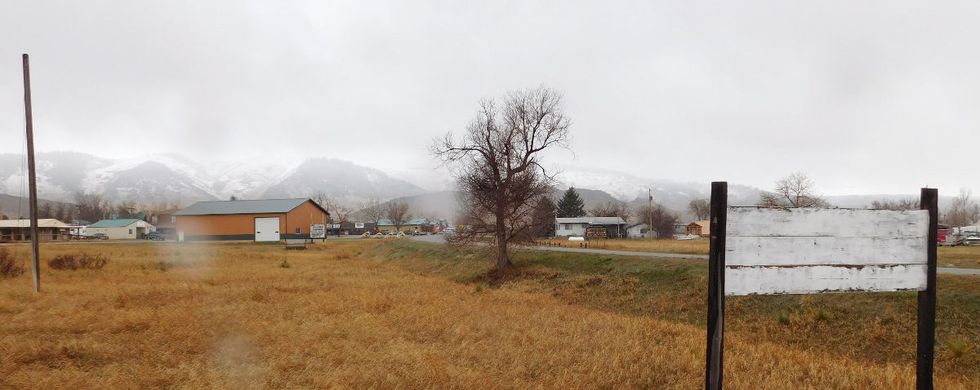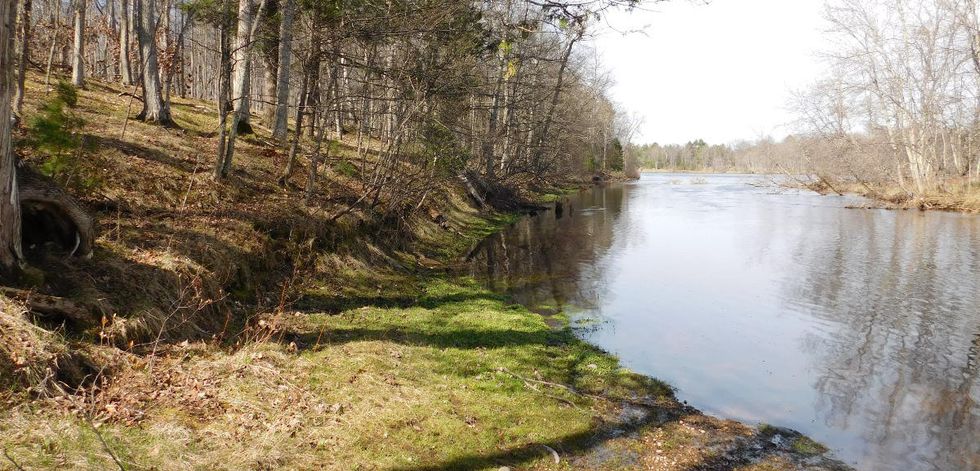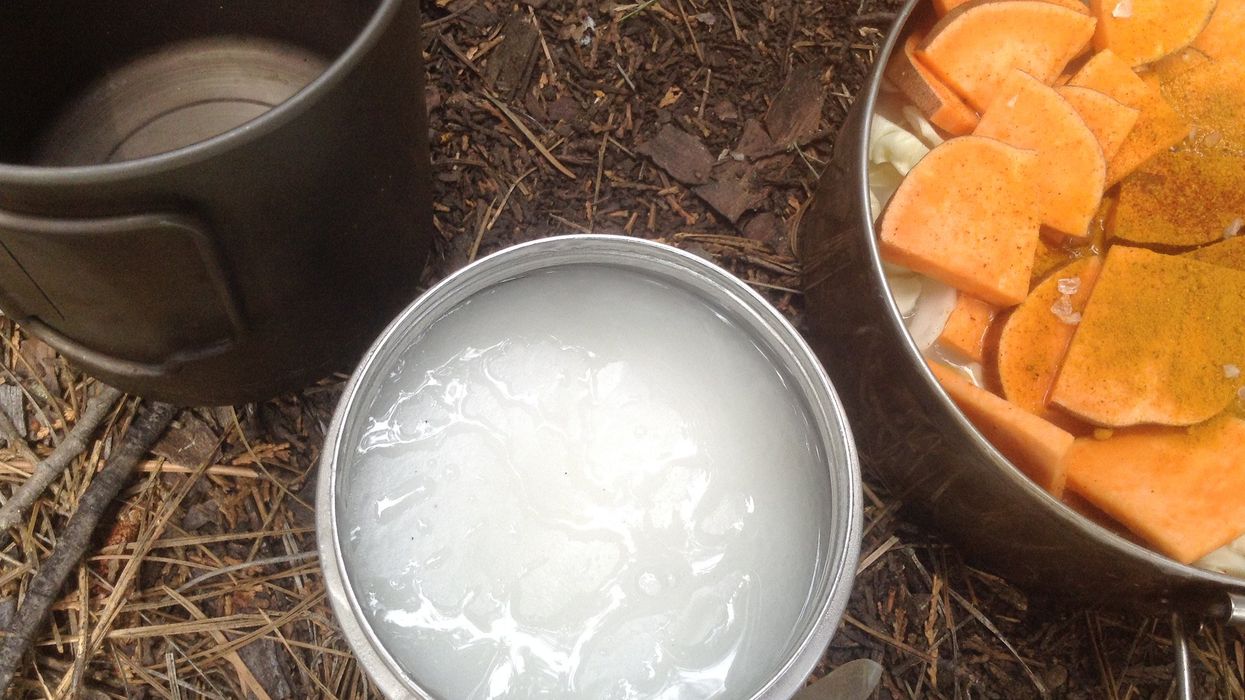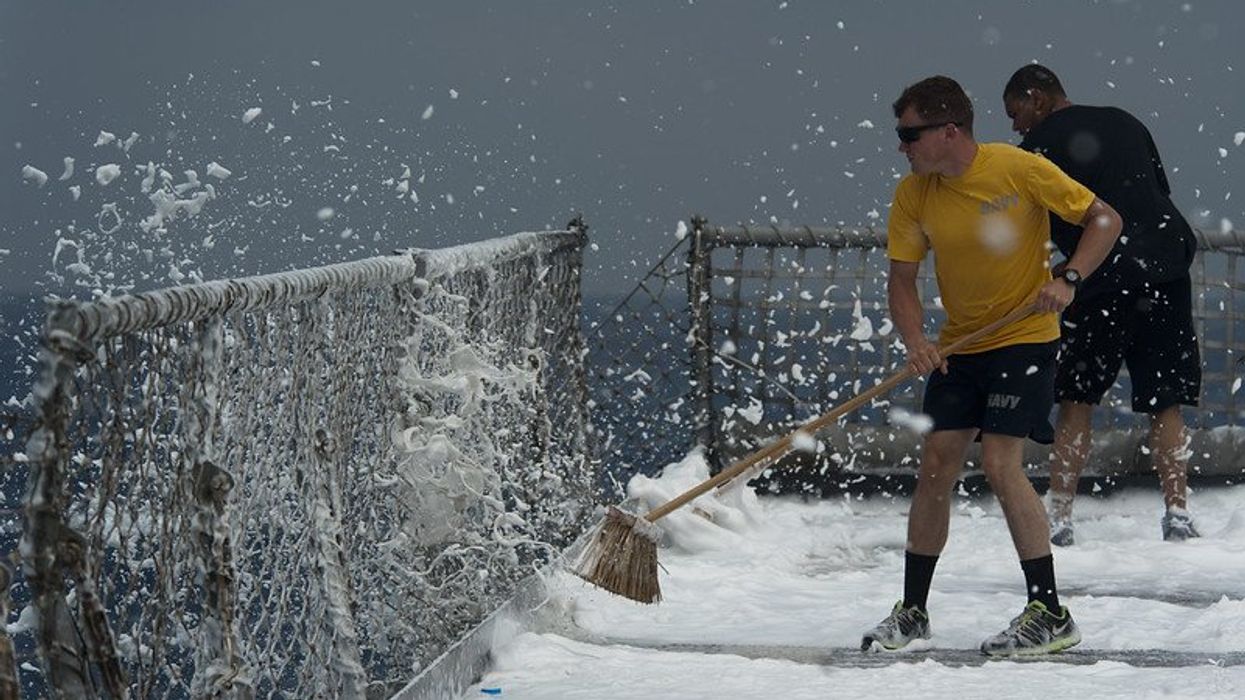For Native American tribes, water more than sustains—it is a sacred, living thing to be revered and protected. It is their cultural touchstone.
Yet tribes across the United States face water pollution problems that make their members sick, taint their traditions and epitomize the weight of modernity squeezing spiritual connections to a breaking point. When it comes to water, more than just treaty rights are at stake for Native Americans. It's basic environmental justice.
Sacred Water is EHN' ongoing investigation into Native American struggles—and solutions—to protect culturally significant water sources on and off the reservation.
Part 1 — August 2016

For the Crow Tribe, water pollution shows up in the form of heavy metals, nitrates, fecal coliform and E. coli, via sources both on and off the reservation. The effects are pretty clear: Contaminated well water exacerbates health problems such as diabetes.
Tainted water imperils health, traditions for Montana tribe. On Montana's Crow reservation, wells provide drinking water and springs offer spiritual cleansing. But most tests find contamination. By Brian Bienkowski, August 22, 2016
Years after mining stops, uranium's legacy lingers on Native land. Abandoned uranium mines and leftover pollution plague Western US tribes. By Brian Bienkowski, August 22, 2016
In Crow Country, a water system brings new life. A long-awaited compact, a massive water system and energized youth bring hope for Crow water woes. By Brian Bienkowski, August 23, 2016
Culture and science merge in environmental research for Crow. Adding cultural observations to Western science bolsters both the science and the tribe. By Brian Bienkowski, August 23, 2016
Essay: Everything has water flowing through it. We grew up learning a tradition of respect for water, hearing our Elders praying with water. Water is a part of every second of our lives, everything has water flowing through it, everything has life. It's one thing to say that, but another thing to truly understand that. By John Doyle, Myra Lefthand, Sara Young, Frederica Lefthand and David Small, August 24, 2016
Part 2 — September 2016

For the Menominee Indians of Wisconsin, burial grounds left outside reservation boundaries may soon become islands in an industrialized, strip-mined landscape. The tribe's reservation is 60 miles away, across the state border. But its cultural headwaters are along the Menominee River, where Aquila Resources, Inc., hopes to start digging.
Mining leaves a Wisconsin tribe's hallowed sites at risk. Wisconsin's Menominee tribe is fighting to save ancestral remains and the river that birthed their people. The problem is, both are across the state line. By Brian Bienkowski, September 19, 2016
Mining's long history in Michigan's Upper Peninsula. While there's been a recent resurgence in mining interest in Michigan's Upper Peninsula, historically mining was to Michigan's Upper Peninsula what the auto industry is to the Lower Peninsula. By Brian Bienkowski, September 19, 2016
River fight boosts a tribe's long-threatened culture. While the Menominee tribe does not share a border with the Menominee River, that doesn't invalidate a connection between environmental insults and reservation health. And the tribe is trying to reestablish its connection with the sacred river to foster cultural and physical health. By Brian Bienkowski, September 20, 2016
Standing together. The Menominee Creation story was told to me by one of our elders on the reservation. We, Menominees, were given the responsibility to look after the Menominee River and land by the creator thousands of years ago, and that supersedes any treaty or law. This Menominee River is a part of me; its essence is within my soul. By Guy Reiter, September 21, 2016
One tribe's 'long walk' upstream for environmental and cultural justice.
Wisconsin's Menominee tap their forebears—and Native American cultural rebirth underway in North Dakota—on a walk to protect their river. By Brian Bienkowski, September 29, 2016
Michigan mine gains two state permits; tribe vows to continue fight.
The Michigan Department of Environmental Quality this week approved a general mining permit and an air use permit for the Back Forty mine in the western Upper Peninsula despite tribal opposition over its location on sacred ground. By Brian Bienkowski, December 29, 2016
Part 3 — November 2016

The Coast Salish tribes' struggle to protect salmon in the Pacific Northwest shows that unity and science can elevate the tribal voice. But is it enough to save the dwindling cultural icon?
Dwindling salmon and treaty rights in the Puget Sound. People love the Puget Sound. This affection—and the crowds, pavement and pollution that inevitably follow—is chipping away at the centerpiece of tribal culture in the Northwest: The salmon runs. By Brian Bienkowski, November 16, 2016
Tribal commissions fight for fishing rights. Tribes across the U.S. coalesce around tribal fish commissions, and many are in battles to protect fish populations and treaty rights. By Brian Bienkowski, November 16, 2016
When the salmon come home. Salmon heading upriver is cause for celebration—as their presence is intertwined with the spirit of Coast Salish tribes. By Lynne Peeples, November 17, 2016
In conclusion
2016 and beyond: Justice jumping genres. A historic year for environmental justice saw government failures in Flint, a resurgent Native voice, and a merging of movements. We're watching where it's headed in the new year.
By Brian Bienkowski, December 28, 2016
Related Coverage:
Drinking water in Indian Country: More violations, less EPA. Analysis shows more health violations but much less federal enforcement at tribal water treatment plants, suggesting "regulatory neglect."
By Brian Bienkowski, November 7, 2016
From the Sioux to the Sault: Standing Rock spirit spreads to Michigan's Upper Peninsula. A 63-year-old pipeline runs beneath the Straits of Mackinac. Great Lakes tribes—tapping into the Standing Rock spirit—want it stopped.
By Brian Bienkowski, November 21, 2016
EHN's environmental justice reporting
EHN has a strong history of award-winning reporting on disproportionate health and environmental threats confronting, more often than not, people of color and low income communities across the United States.
Our 2012 special report, Pollution, Poverty, People of Color, traced the struggles of seven communities coping with environmental threats, from Richmond, Calif. to Anniston, Ala. The reporting was recognized with an honorable mention by the 2013 Oakes Award committee, one of the environmental journalism's most prestigious national prizes.
Ongoing reporting can be found here in our archives and includes dispatches from North Carolina, Texas, Pennsylvania and beyond.
These stories resonate with all of us, regardless of race, color or class. We invite you to explore the issue with us.
EHN welcomes republication of our stories, but we require that publications include the author's name and EHN at the top of the piece, along with a link back to EHN's version.
For questions or feedback about this piece, contact Brian Bienkowski at bbienkowski@ehn.org.
- Community activists lauded in fight for environmental and racial justice - EHN ›
- Op-ed: Nurses urge upstream approach to clean water and health - EHN ›
- Op-ed: Nurses urge upstream approach to clean water and health - EHN ›
- Engine for social justice leads the way to change - EHN ›
- How solving environmental injustice solves climate change - EHN ›
- LISTEN: Valerisa Joe-Gaddy on tribal water justice - EHN ›
- JoRee LaFrance on water research and advocacy for the Crow Tribe - EHN ›
- LISTEN: Kevin Patterson on Indigenous communities’ heavy metal exposure - EHN ›
- Restoring our waters is restoring ourselves - EHN ›
- Restoring our waters is restoring ourselves - EHN ›
- Water injustice on display in the Southwest US - EHN ›
- La injusticia del agua, en primer plano al suroeste de Estados Unidos - EHN ›
- Opinion: Protecting Indigenous children means protecting water - EHN ›
- Opinión: Proteger a los niños indígenas es proteger el agua - EHN ›
- Seneca Nation tribe fights Pennsylvania fracking wastewater plant - EHN ›

















